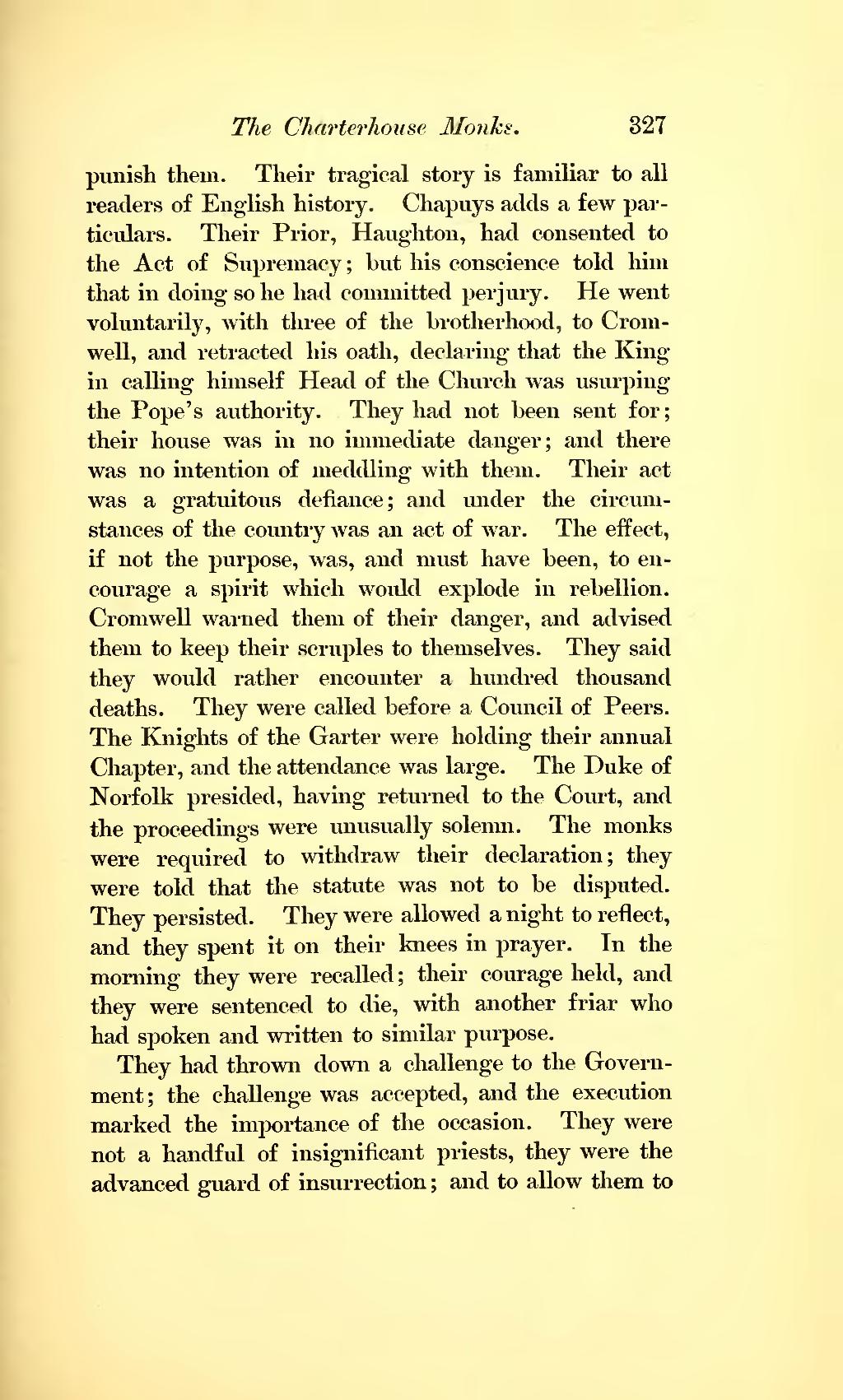punish them. Their tragical story is familiar to all readers of English history. Chapuys adds a few particulars. Their Prior, Haughton, had consented to the Act of Supremacy; but his conscience told him that in doing so he had committed perjury. He went voluntarily, with three of the brotherhood, to Cromwell, and retracted his oath, declaring that the King in calling himself Head of the Church was usurping the Pope's authority. They had not been sent for; their house was in no immediate danger; and there was no intention of meddling with them. Their act was a gratuitous defiance; and under the circumstances of the country was an act of war. The effect, if not the purpose, was, and must have been, to encourage a spirit which would explode in rebellion. Cromwell warned them of their danger, and advised them to keep their scruples to themselves. They said they would rather encounter a hundred thousand deaths. They were called before a Council of Peers. The Knights of the Garter were holding their annual Chapter, and the attendance was large. The Duke of Norfolk presided, having returned to the Court, and the proceedings were unusually solemn. The monks were required to withdraw their declaration; they were told that the statute was not to be disputed. They persisted. They were allowed a night to reflect, and they spent it on their knees in prayer. In the morning they were recalled; their courage held, and they were sentenced to die, with another friar who had spoken and written to similar purpose.
They had thrown down a challenge to the Government; the challenge was accepted, and the execution marked the importance of the occasion. They were not a handful of insignificant priests, they were the advanced guard of insurrection; and to allow them to
